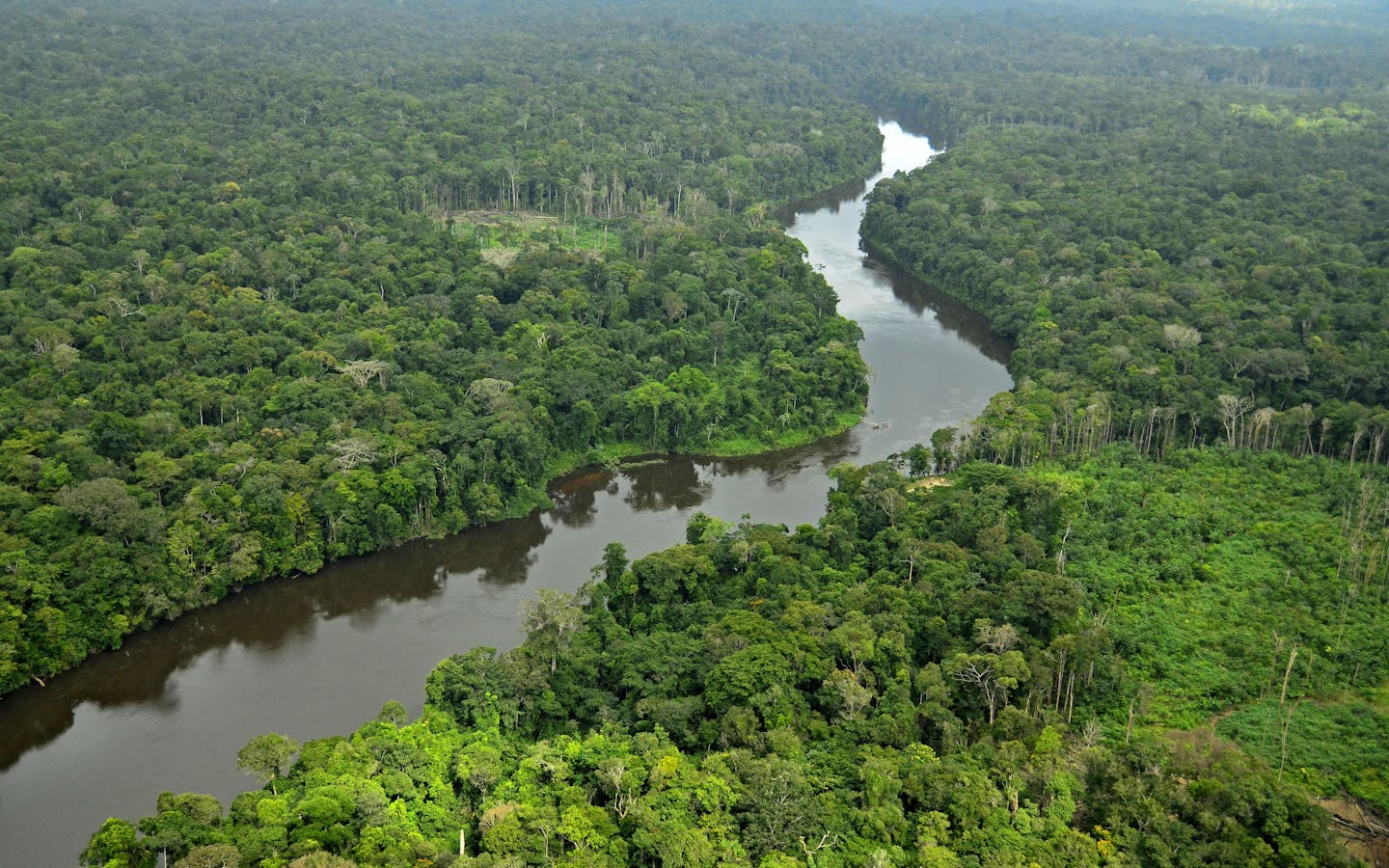Conserving 7.2 million hectares of tropical forest and freshwater resources
Southern Suriname is part of the Amazon Rainforest. It holds a considerable amount of natural wealth in terms of biodiversity, freshwater resources and cultural heritage. However, the isolation that has protected Suriname’s southern unique ecosystem is now threatened by high commodity prices that have encouraged the development of roads to the south that can increase the spread of small-scale activities, such as gold-mining, logging, hunting, poaching and other potentially unsustainable activities. When undertaken without due care, these activities can degrade water quality within the region’s extensive system of waterways and reservoirs which could harm Suriname’s unique ecosystems and cause great impact on indigenous communities living in the south who rely heavily on natural resources for hunting, fishing and other traditional purposes such as medicinal plants.
Also, as is the case in many countries around the world, long-term sustainable economic development in Suriname is threatened by climate change. Availability of food, freshwater resources and habitat vulnerability are among the most prominent issues related to climate change and likely to have disproportionally greater impact on Indigenous communities living in the south. For these reasons, the project called TWTIS (former SSCC) was started.
An introduction to TWTIS (former SSCC)
After an extensive engagement process with the indigenous communities in South Suriname, the indigenous leaders of the region signed an Indigenous Declaration for the protection of 7.2 million hectares of pristine tropical forest. This area is about 40% of Suriname’s land surface and approximately half the size of the state Pennsylvania and five times the size of the Grand Canyon. Moreover, almost half of Suriname’s headwaters spring from this southern part of the country, which contribute in great part to Suriname’s ranking as a freshwater rich country with 10% of world’s freshwater in rivers. By signing the document, the indigenous communities declared the Southern Suriname Conservation Corridor on March 5, 2015. In October 2017 the Indigenous communities established Trijana (Trio and Wayana) to represent the trio and Wayana communities in South Suriname. In November 2018 Trijana changed the SSCC name into TWTIS so they can identify themselves more with the project.

Revision of Suriname’s Nature Protection Law
For legal recognition of the SSCC, it is necessary that the current Nature Protection Laws of Suriname from 1954 be revised so co-management and sustainable livelihoods for indigenous communities are possible within protected areas.
Development of sustainable livelihood projects with local indigenous communities
Conservation International’s Conservation Stewards Program seeks to empower local communities in South Suriname to conserve nature and spur socio-economic development by implementing conservation agreements.


